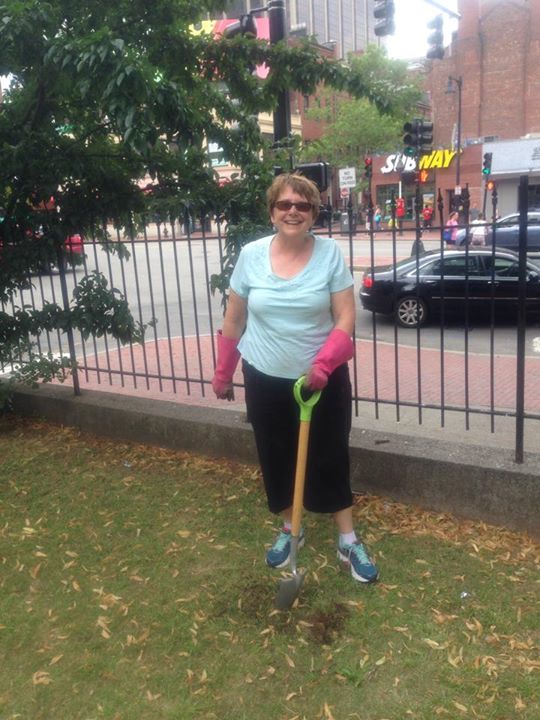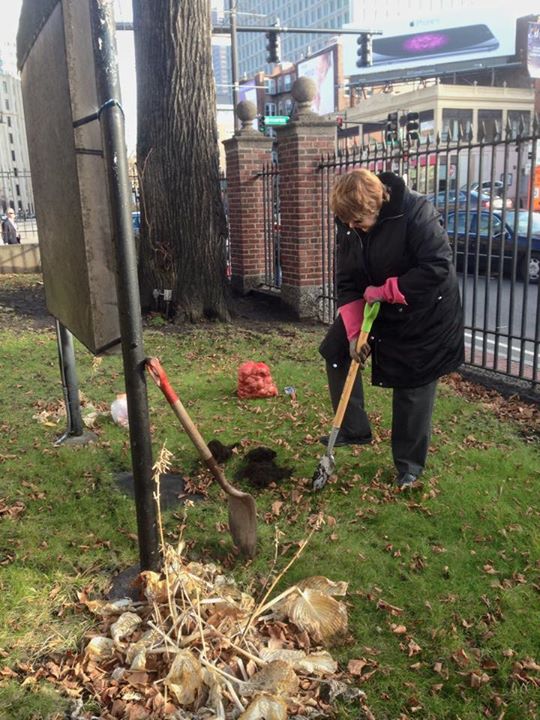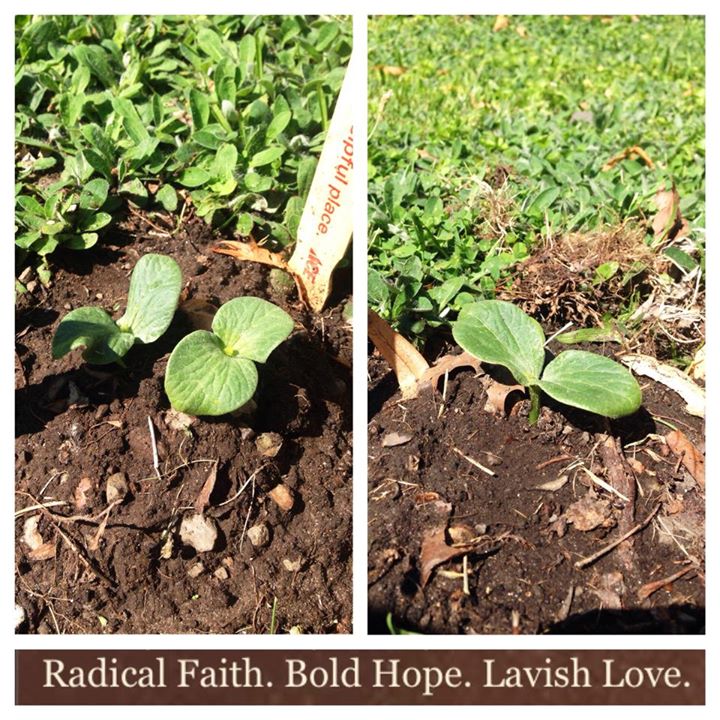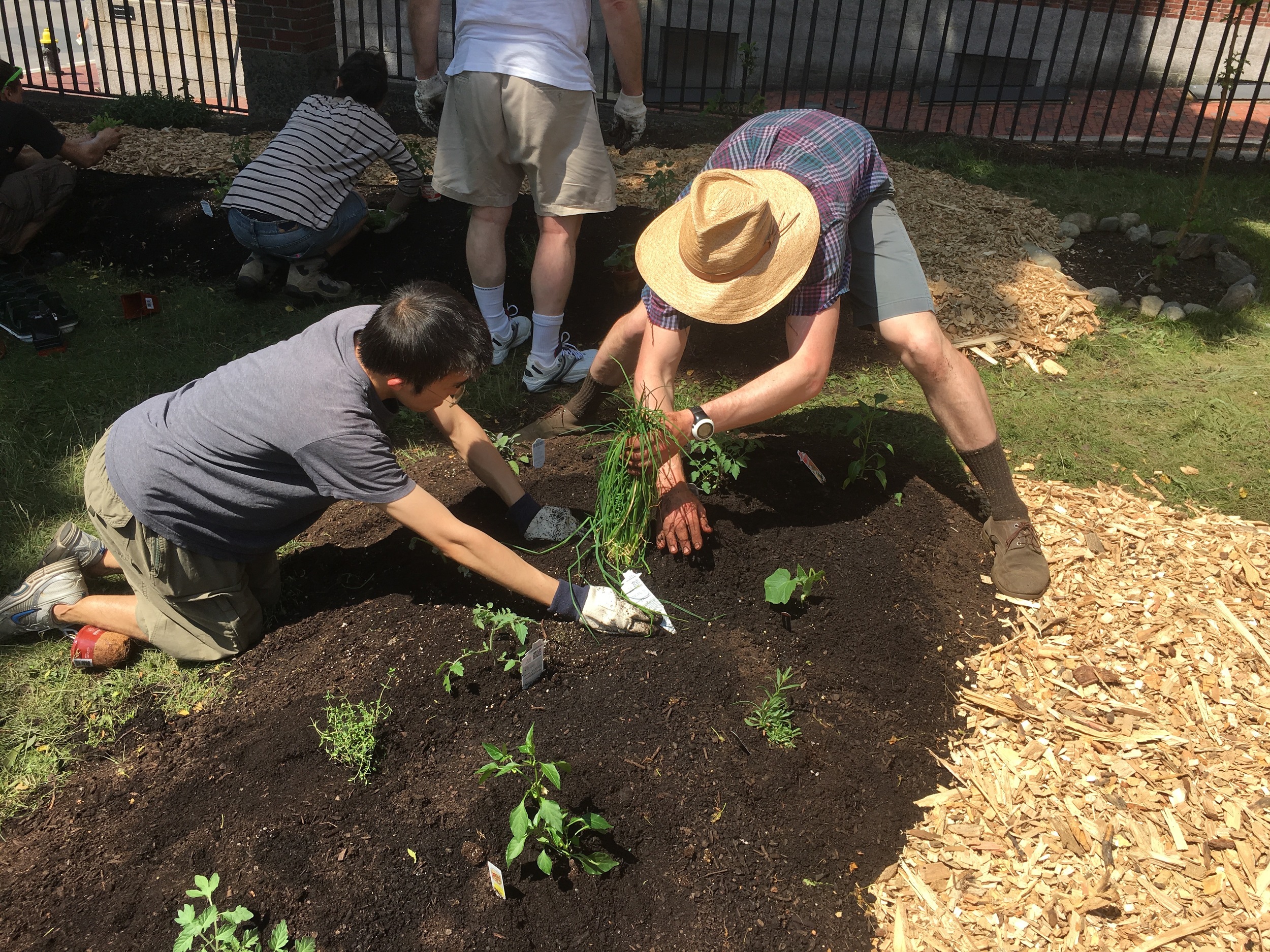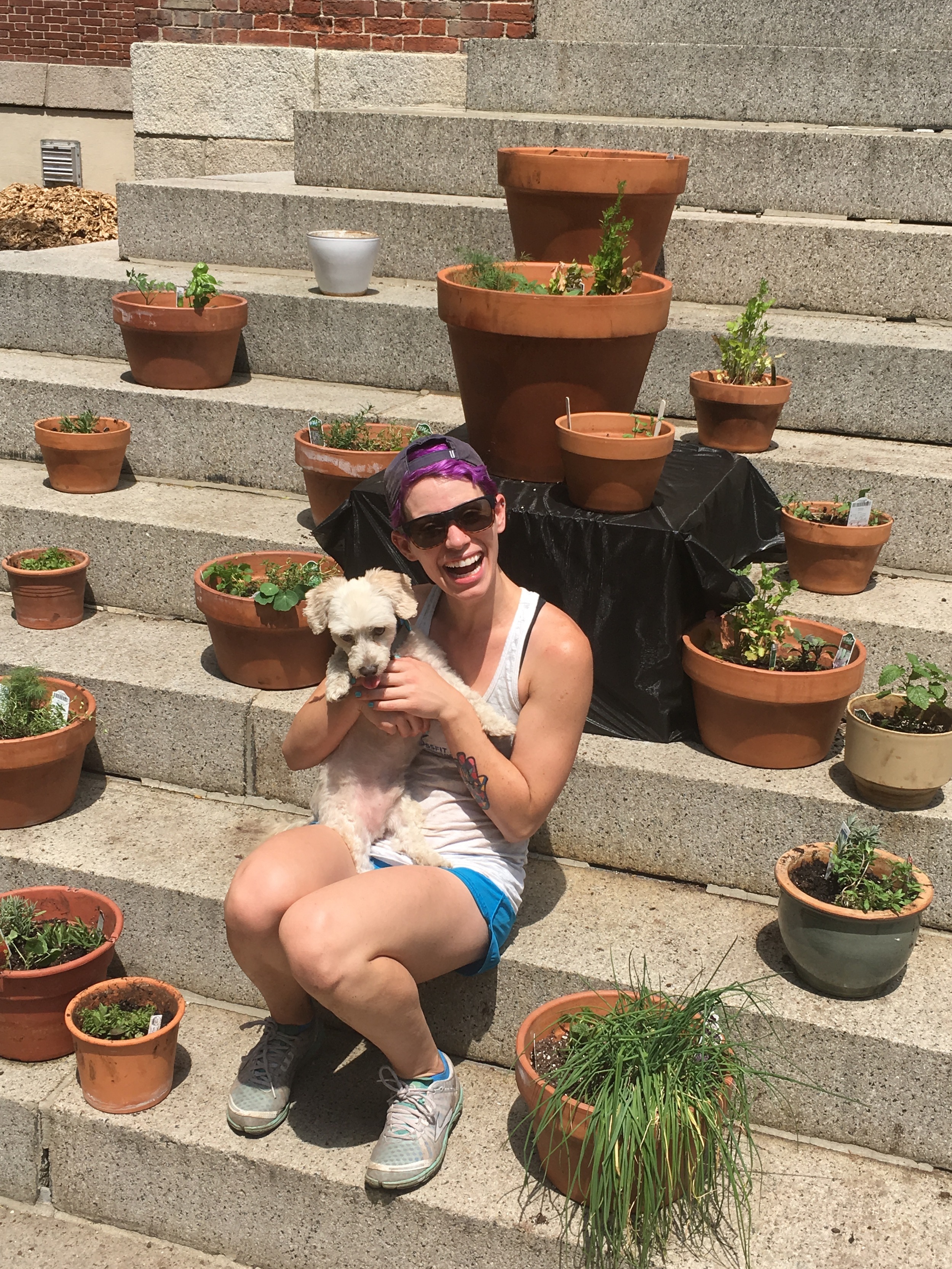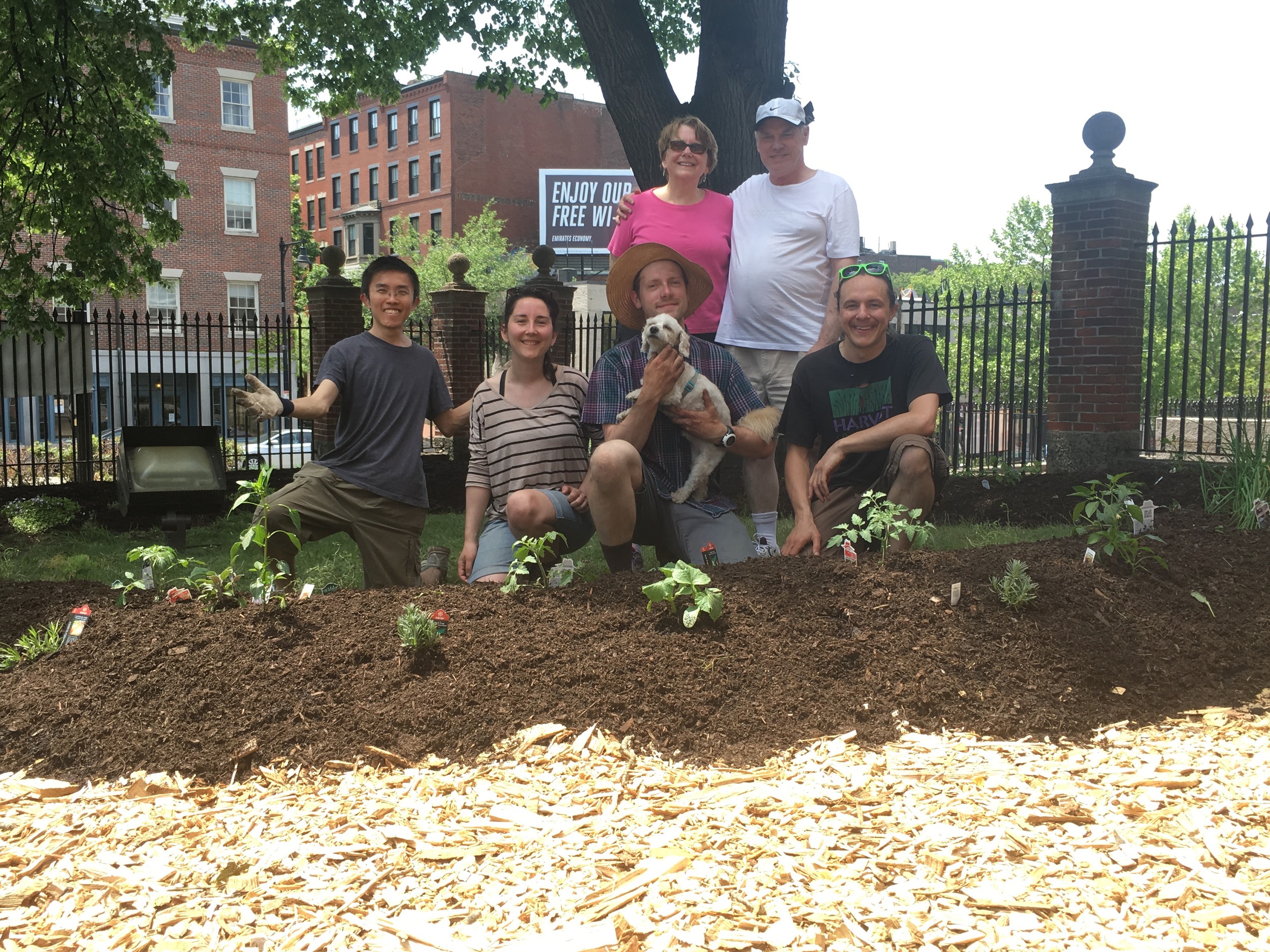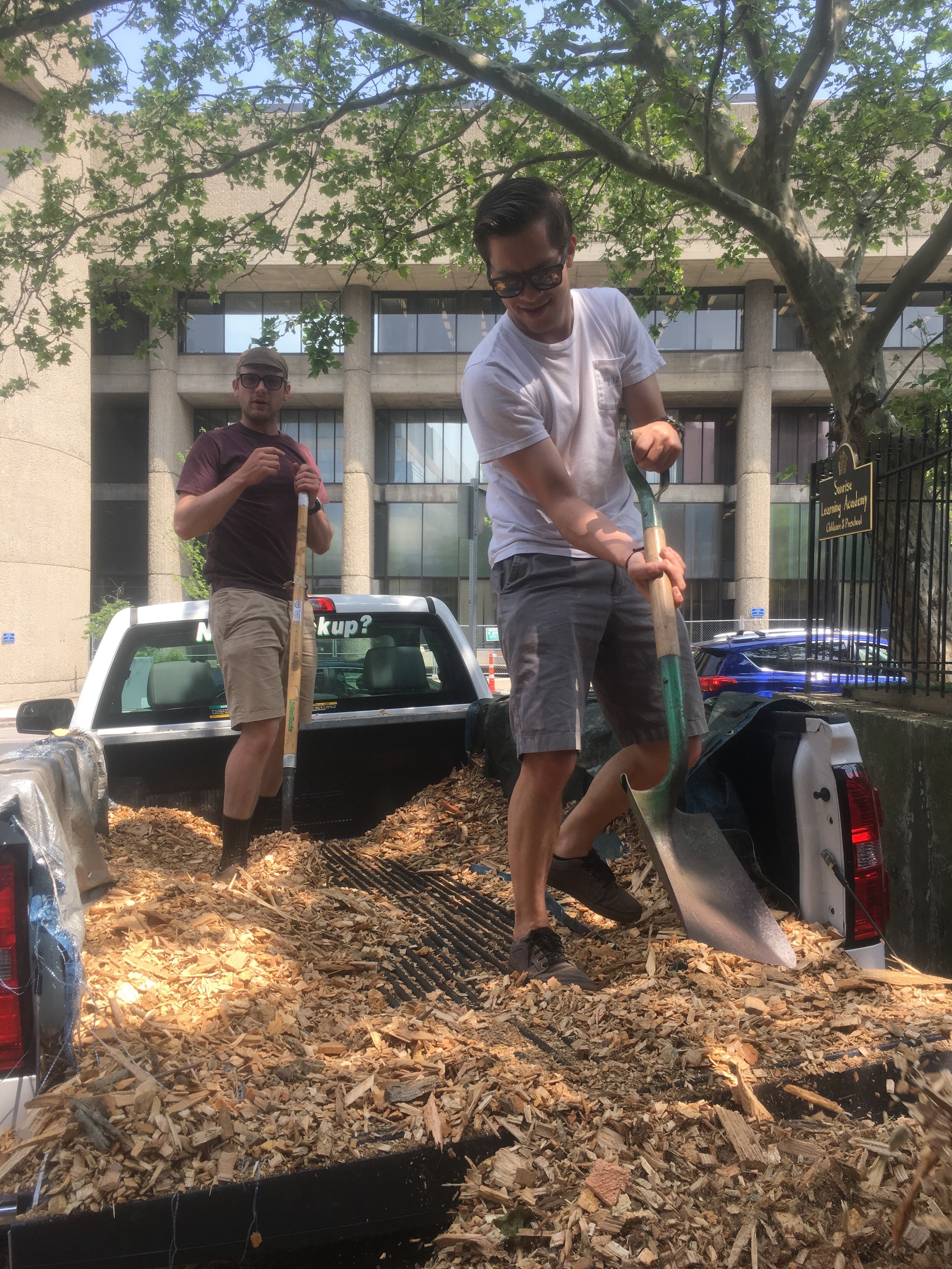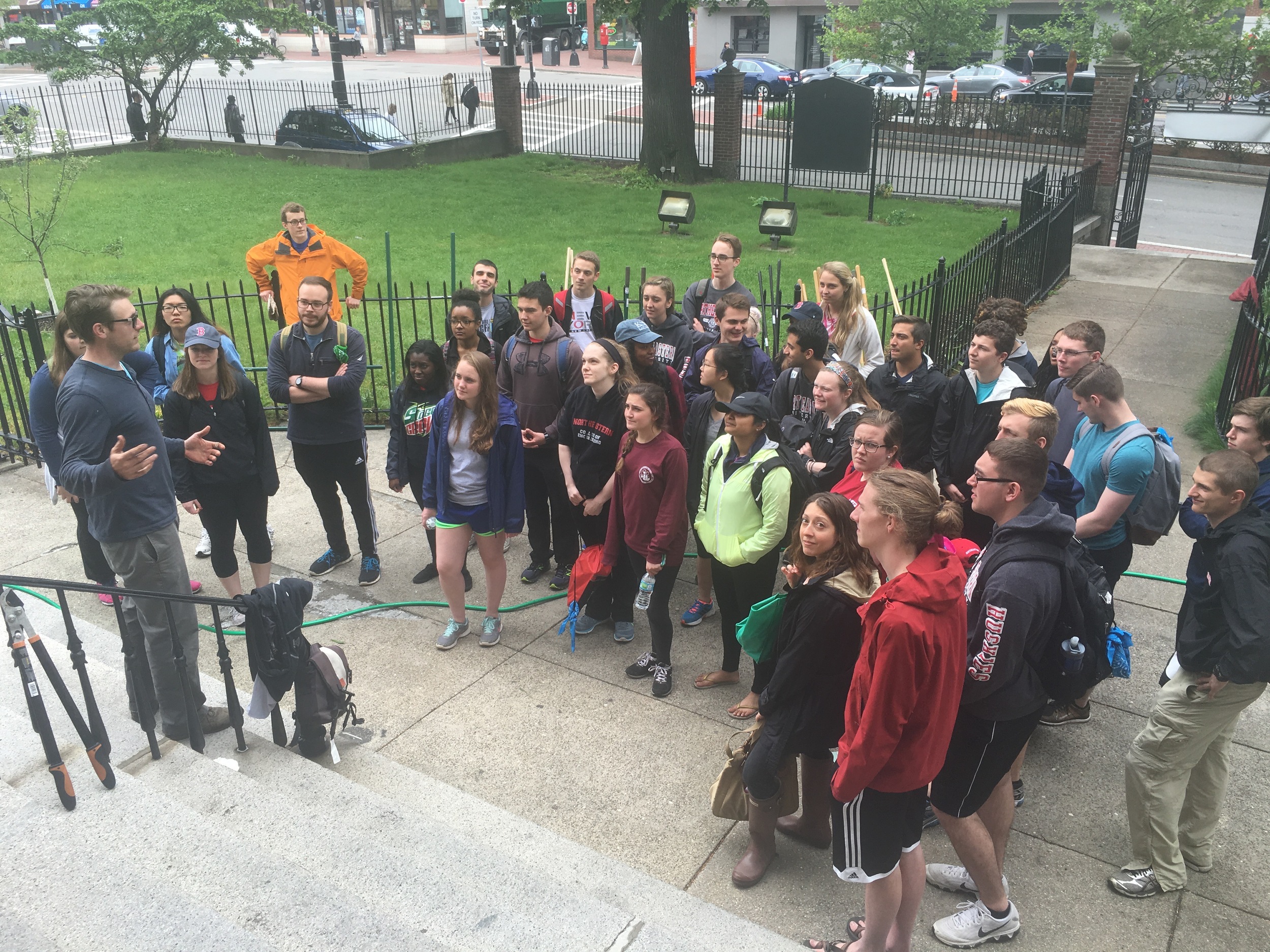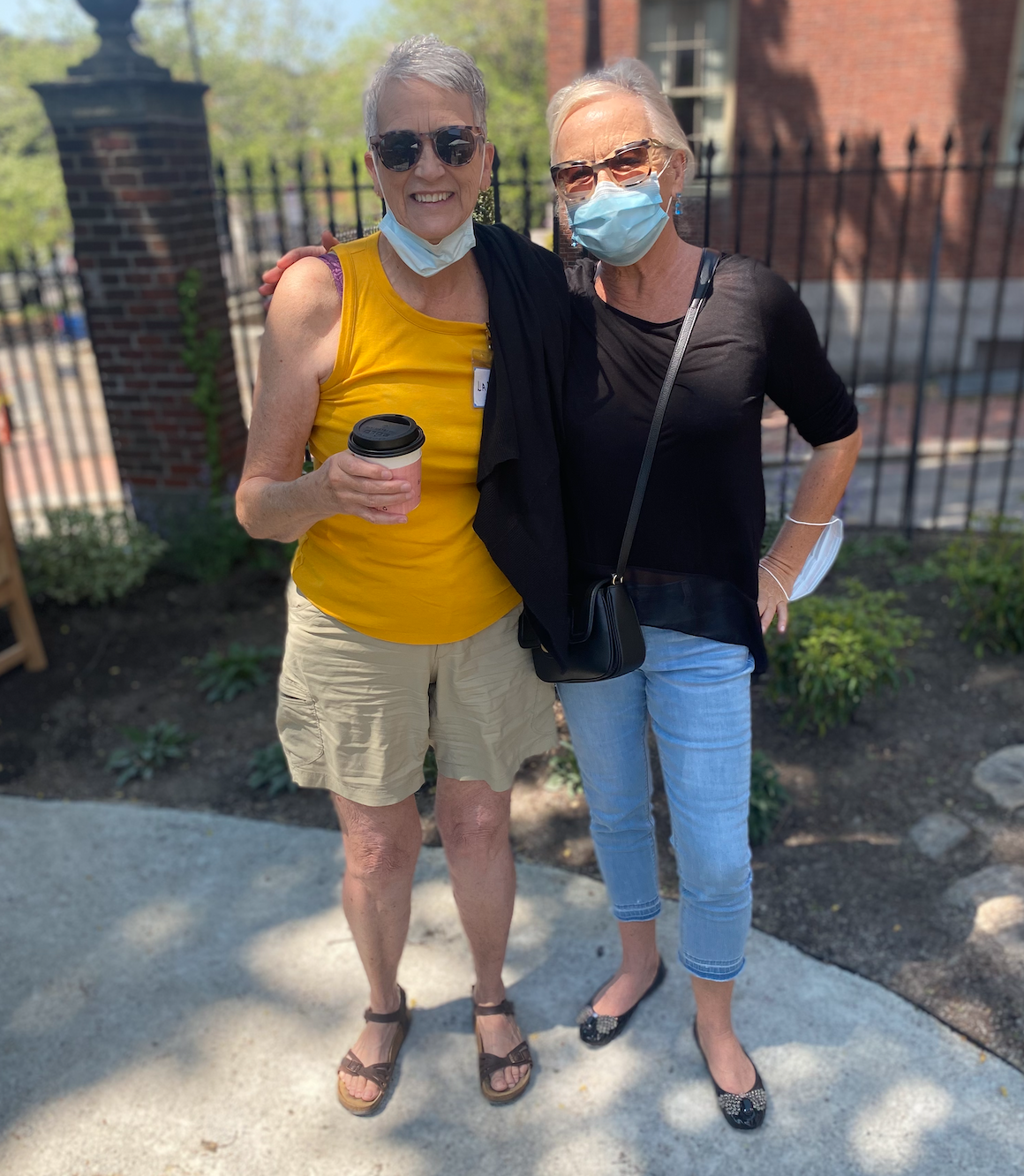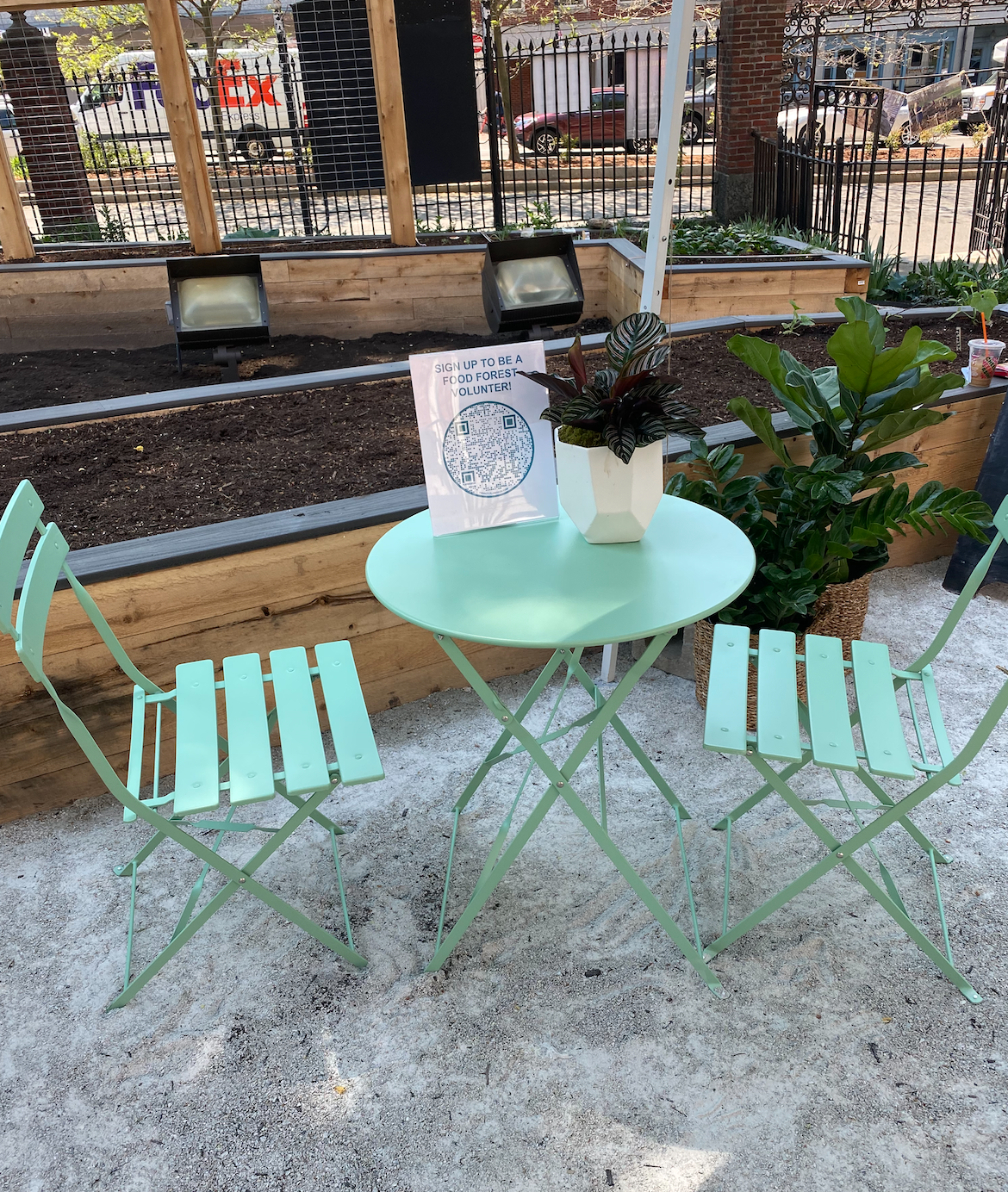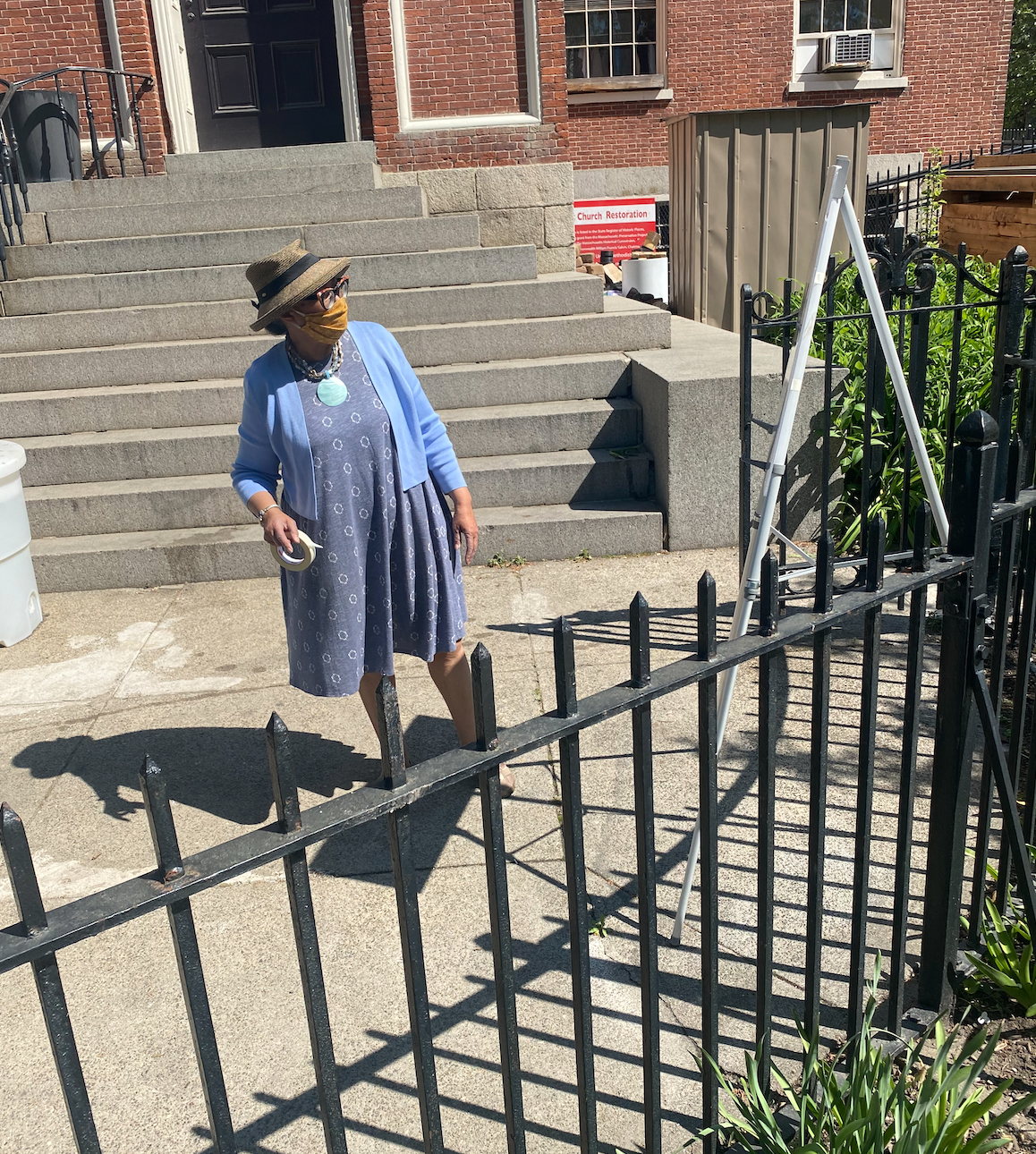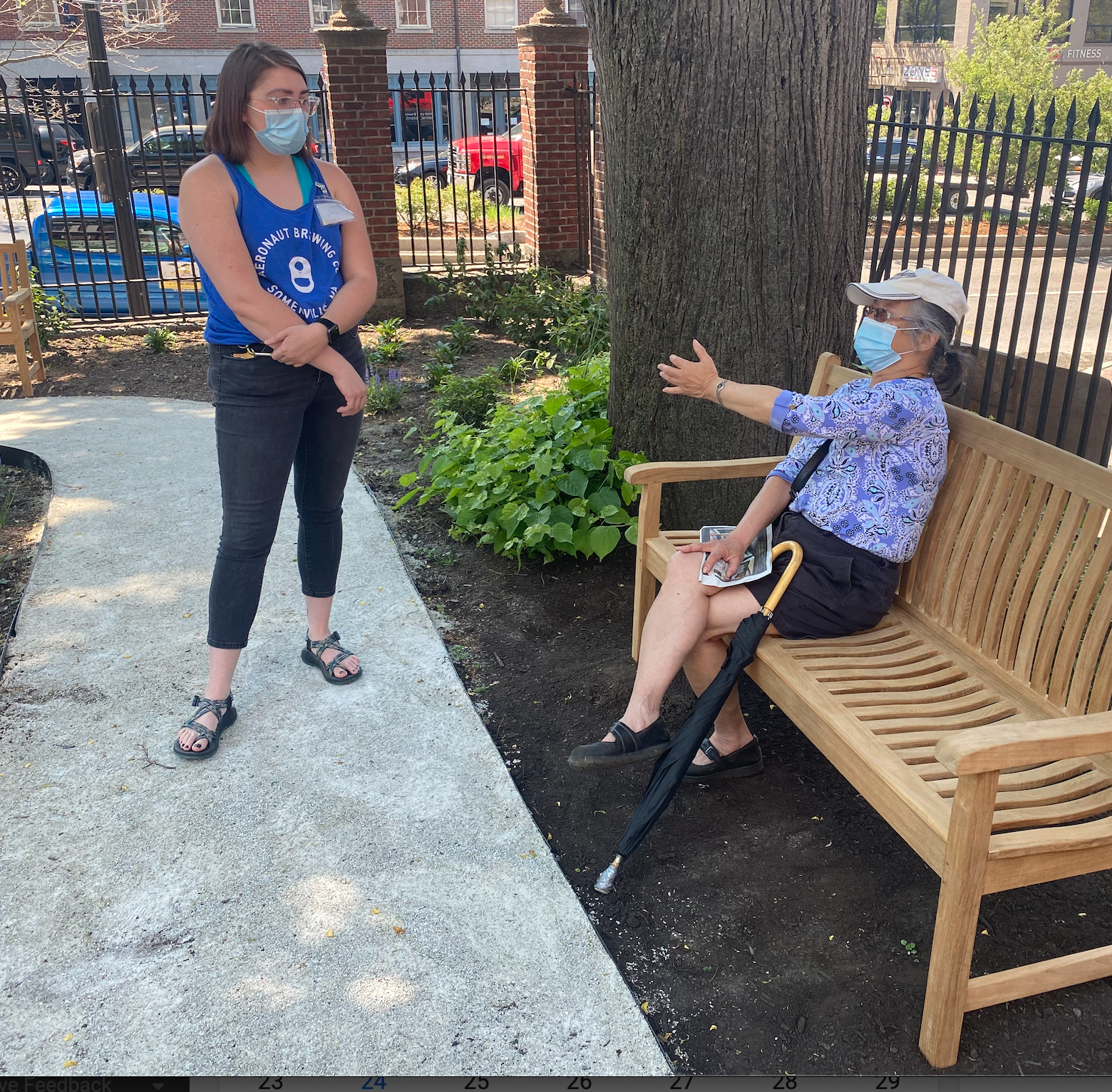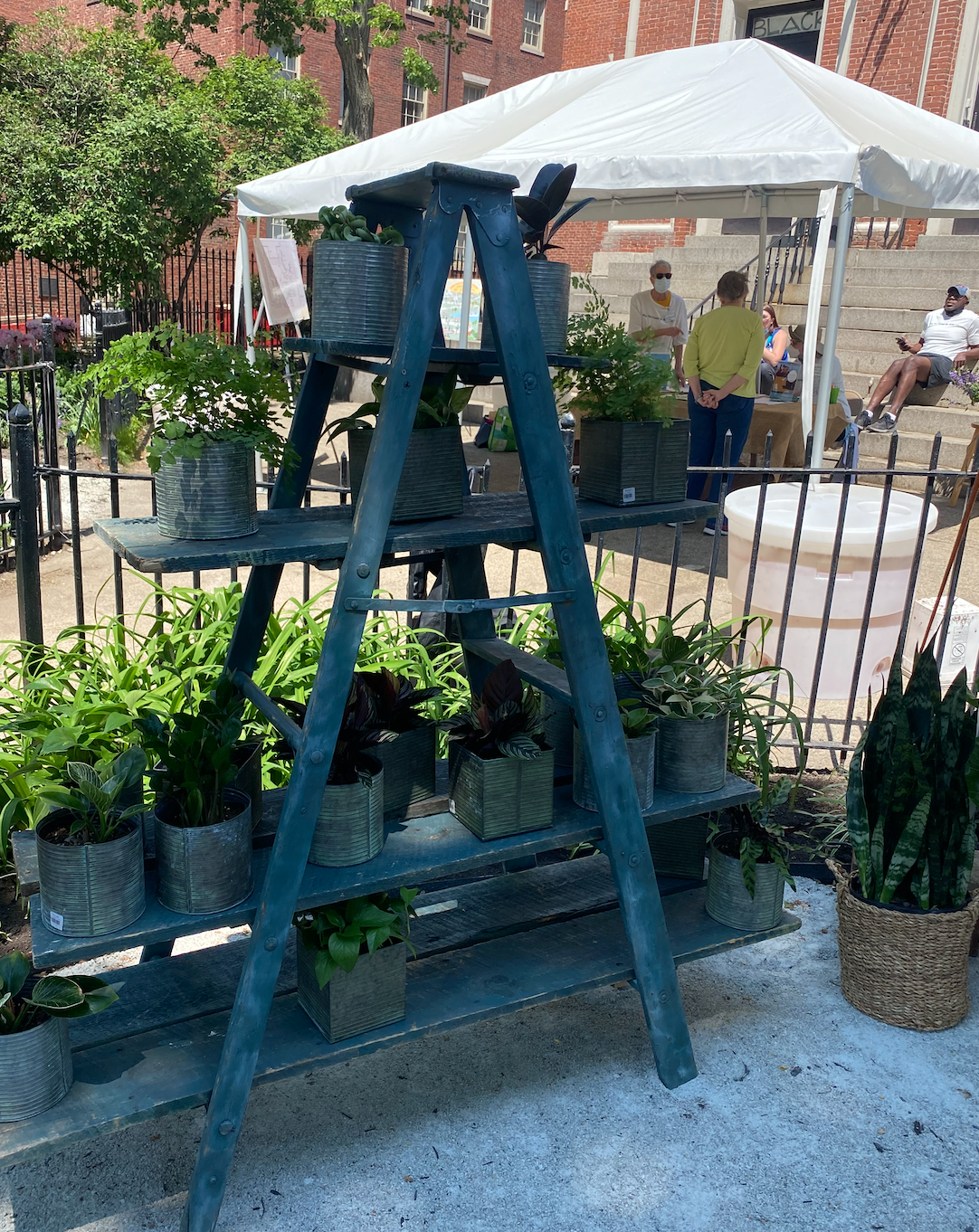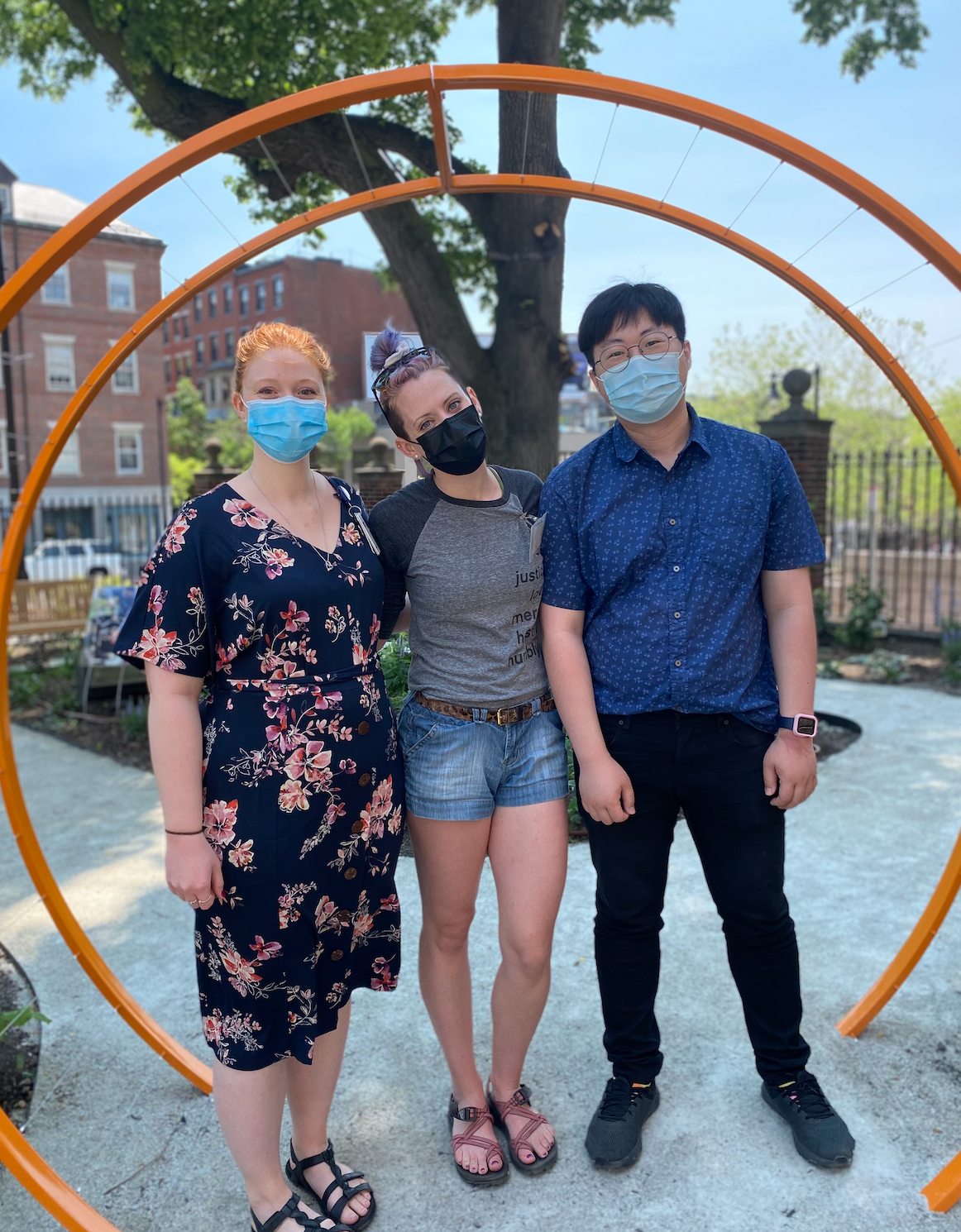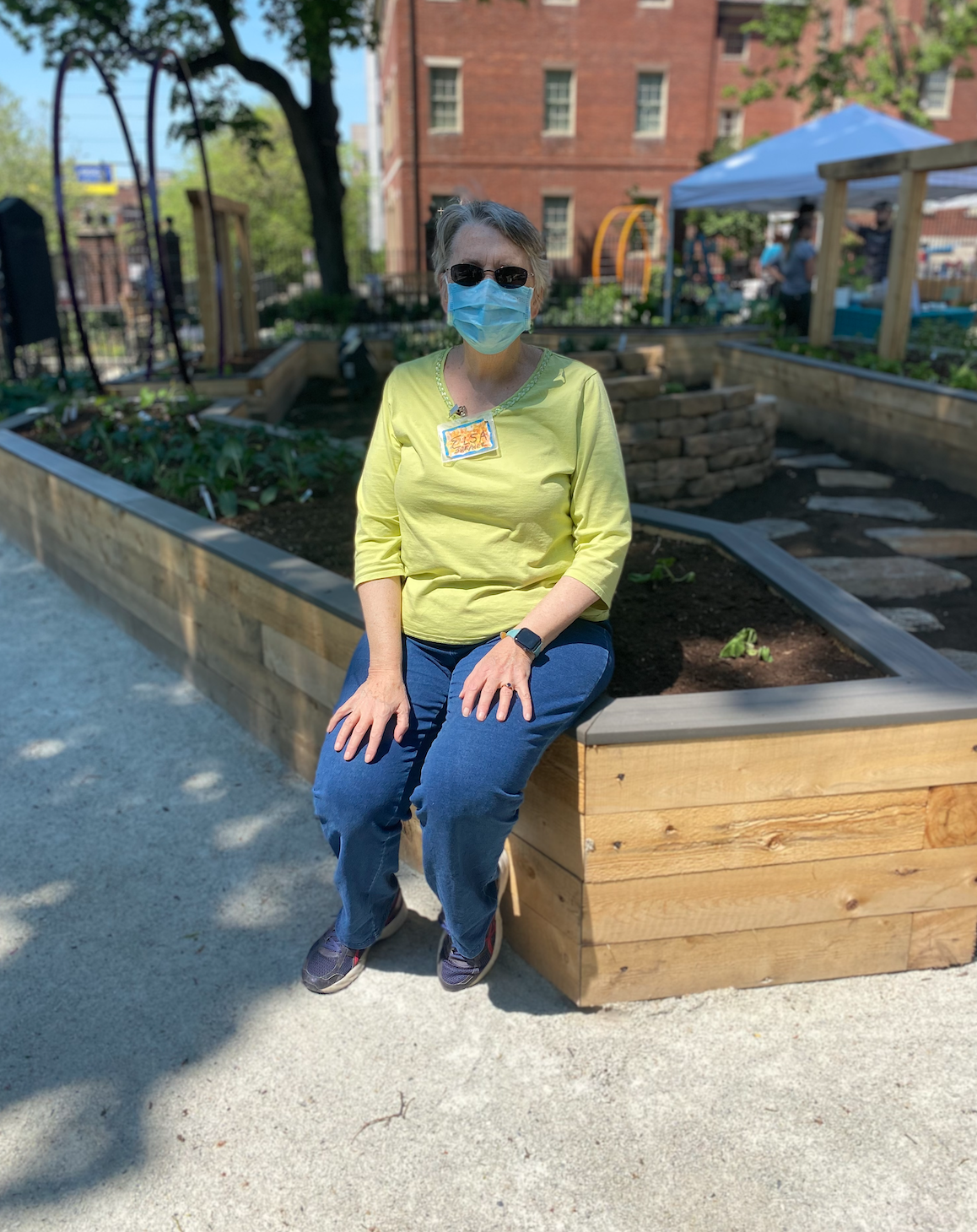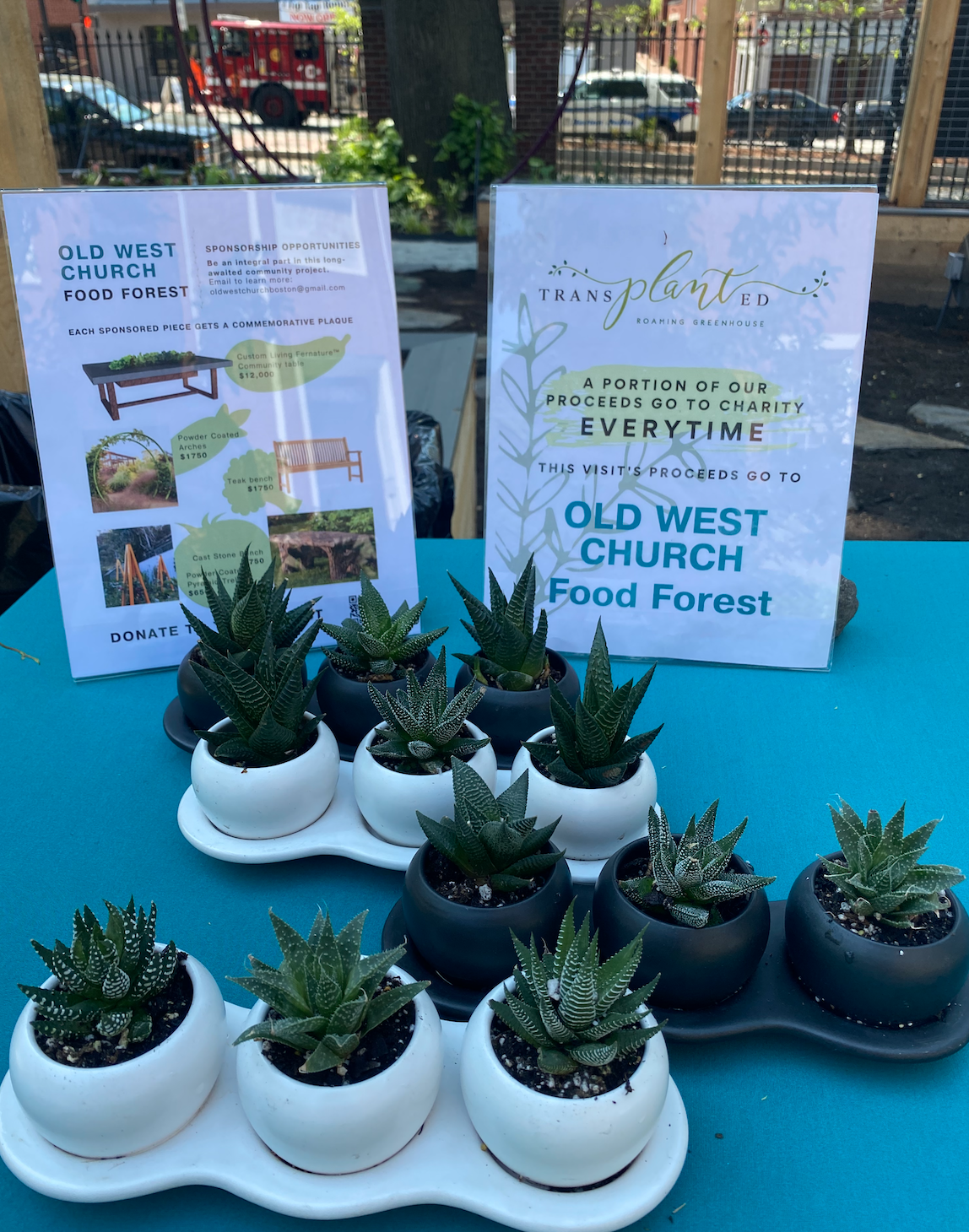Feed Thy Neighbor.
SIGN UP TO VOLUNTEER IN THE FOOD FOREST HERE!
An urban food forest in the heart of Boston.. this dream seemed far off a year ago but since our partnership with the Boston Food Forest Coalition in the Spring of 2015, this dream started becoming a reality!
Since 2015, with partners like Northeastern University, Boston Food Forest Coalition, and visiting youth groups, we have put in over 1500+ labor hours to bring about this vision.
In 2019, we received funding from the Browne Fund to begin a food forest expansion. Most of 2020 was spent deciding on a landscape architect to partner with and finalizing the design. We broke ground on this design in 2021, including the installation of a pollinator garden, living wall, permanent irrigation, and Living FernitureTM tables.
While we are not going to grow massive amounts of food, we want our space to provide for the community, including our two weekly community meals and hopefully, the local food pantry. Food justice is a big part of OWC's identity, very much rooted in our first two core values, inclusive community and racial equity & social justice.
All we do, all we hope to be is rooted in these.
For the sake of the city and the glory of God.
FAQ:
Q: What is a Food Forest?
A: A food forest is a sustainable land management system that mimics a woodland ecosystem, focusing on food-producing trees and shrubs. In a food forest system, edible plants occupy a succession of layers—including upper level fruit and nut trees, middle level berry shrubs and vines, and lower level herbs, edible perennials, and annuals—to create an interconnected and productive whole. Intermixed with these edibles are beneficial plants that attract helpful, pest-controlling insects and that build healthy soil by providing nitrogen and mulch. Working together, this diverse collection of plants form functional relationships that maximize food yields while reducing the need for maintenance. This regenerative forest garden ecosystem offers a beautiful, ecologically healthy, and useful way to meet our most urgent human needs for food, shelter, water harvesting, and medicine.
Q: Who can harvest from the OWC Food Forest?
A: All the food we grow is free for anyone to harvest. All are also free to contribute (planting, etc).
“Let justice roll down like waters, and righteousness like an ever-flowing stream”

